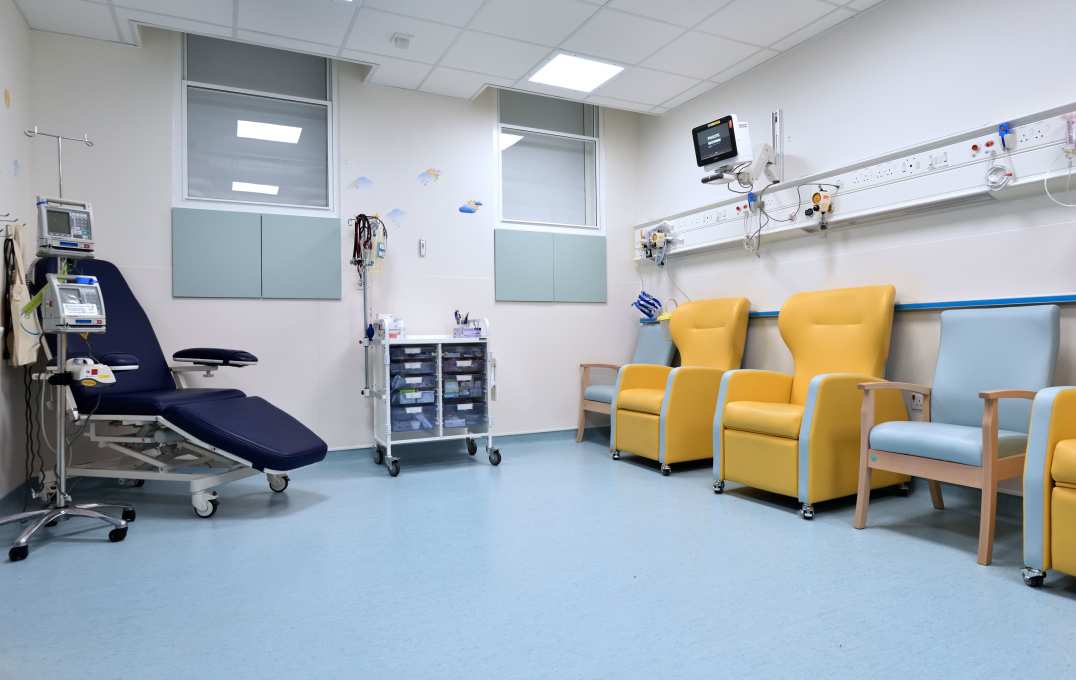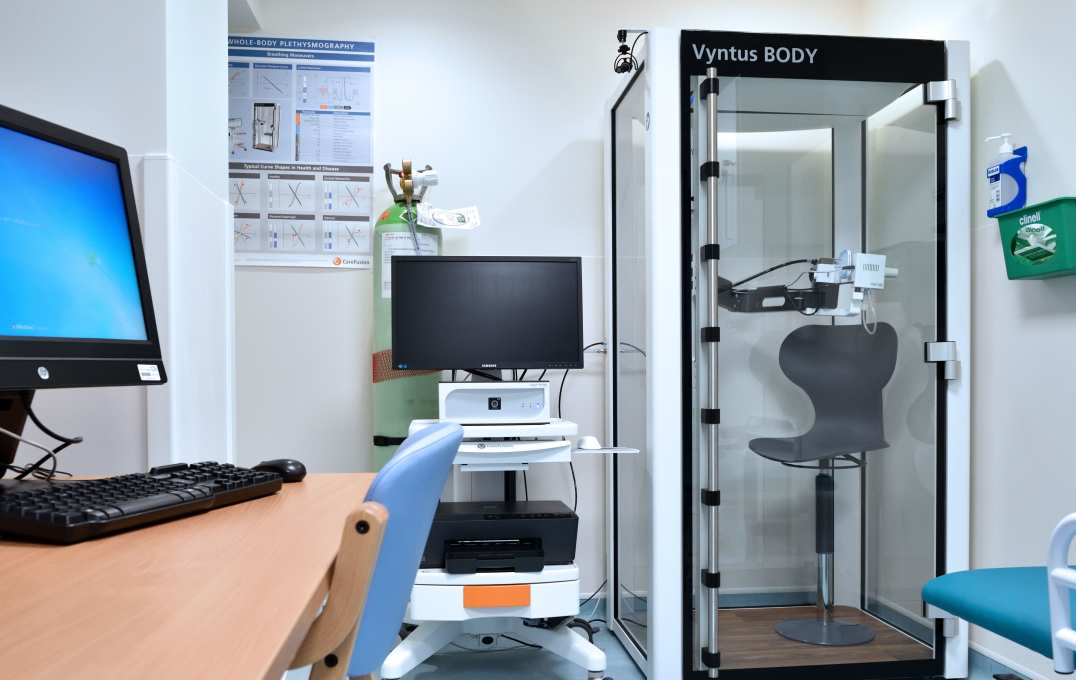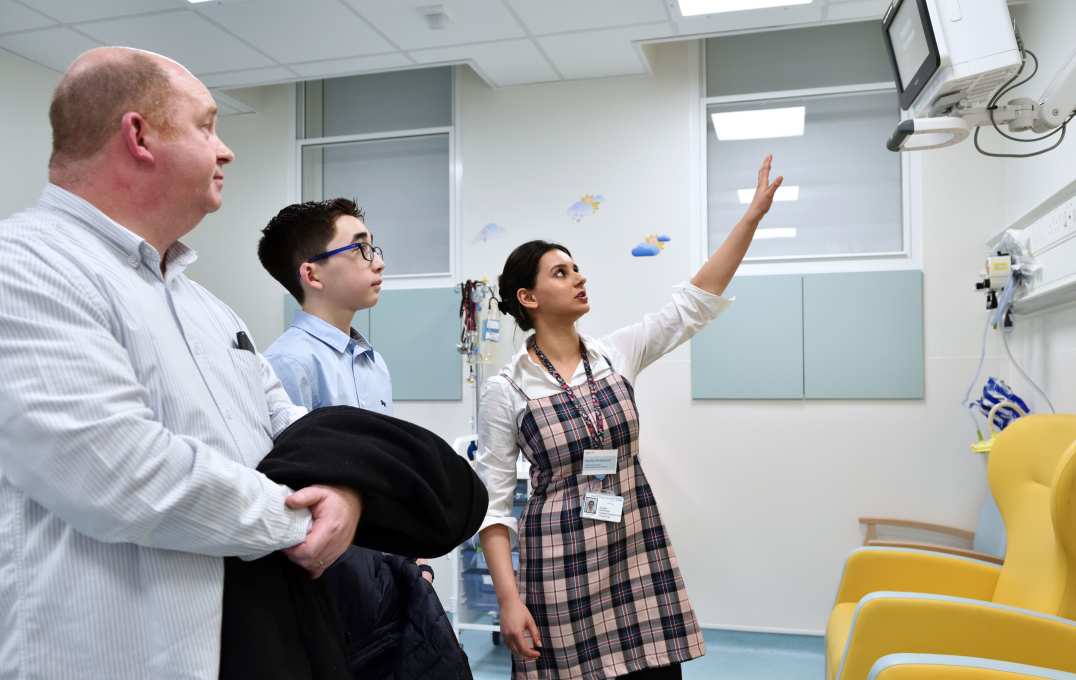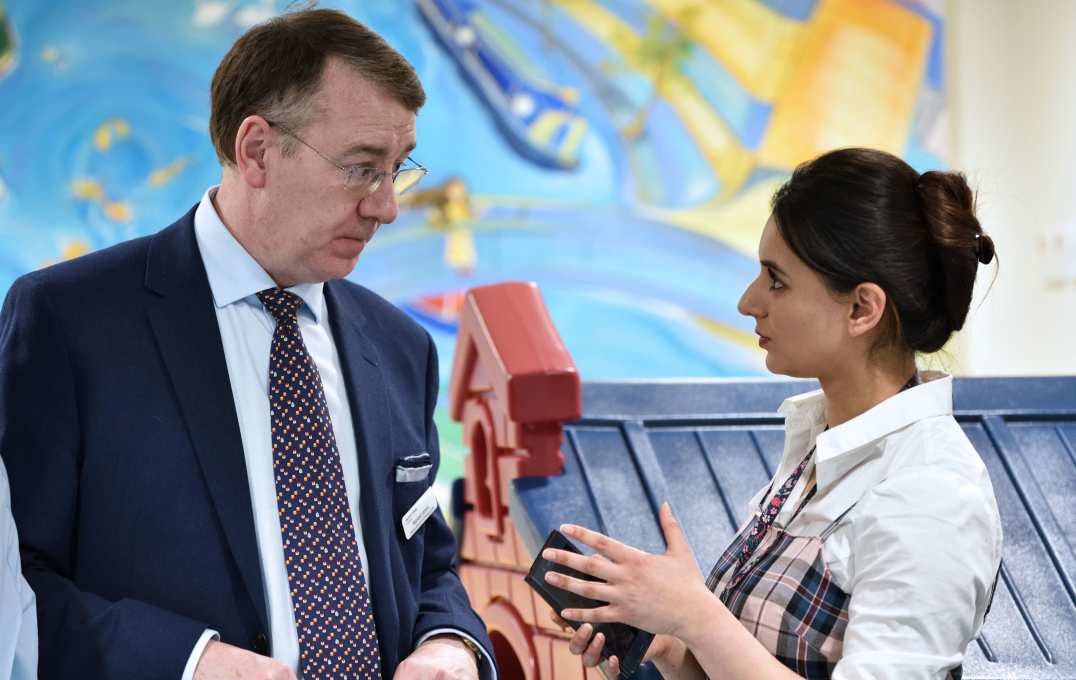New children’s research facility opens at Imperial
by Maxine Myers
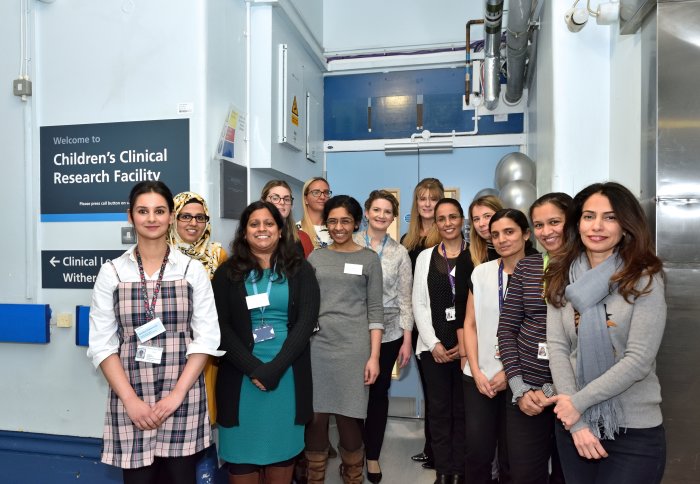
A research facility that aims to improve the quality of life, treatment and care for children with complex diseases formally opened this month.
The Children’s Clinical Research Facility (CCRF) was completed in 2018 and focuses on translational research in children with complex childhood diseases such as food allergy, asthma, sickle cell anaemia, hepatitis, tuberculosis (TB), acute infections and sleep disordered breathing. The facility is based at St Mary’s Hospital, part of Imperial College Healthcare NHS Trust, and is generously supported by the Charles Wolfson Charitable Trust.
The UK has some of the highest prevalence rates of allergic conditions in the world, with over 20 per cent of the population affected by one or more allergic diseases such as asthma.
Patients and staff from Imperial College London and Imperial College Healthcare NHS Trust recently gathered at St Mary’s Hospital to celebrate the launch of the CCRF, learn more about the facility and tour the space.

Professor Jonathan Weber, Dean of the Faculty of Medicine and Director of Imperial College Academic Health Science (AHSC), opened the facility at the event. He said:
“The work of the CCRF is vital in the prevention, diagnosis and treatment of diseases affecting children’s health through adolescence to adulthood. The number of cases of childhood diseases such as allergies and asthma is rising in the UK and there is a need to find new ways of tackling this. The CCRF is a great example of this as we are taking scientific discoveries made at the College and working in collaboration with clinicians at the Trust so that we can bring greater benefits to patients and deliver better care.”
Professor Adnan Custovic, Professor of Paediatric Allergy at Imperial College London, added:
“Our work is already having a positive impact on patients and shows that we are delivering the highest standards of experimental medicine research involving children and adolescents. This well designed, furnished and equipped children’s facility allows us to plan for the future and expand the scope of our research so we can reach out and help even more patients.”
The Hon Andrew Wolfson, Trustee of the Charles Wolfson Charitable Trust, commented: “This new facility fits in well with the objectives of our family charitable trust as it brings together clinicians and research scientists under one roof to provide better patient care and outcomes. We are delighted to support this project.”
A multidisciplinary team of scientists from Imperial College London and clinicians at the Trust conduct research activities and clinical trials in which children and young people participate. The aim is to find new therapies for a range of serious childhood disorders.
Some of the research currently taking place at the CCRF includes:
- Personalised Risk Assessment in Febrile Illness to optimise real life management across the EU (PERFORM): The PERFORM study aims to improve the diagnosis and management of children with fever by developing tests to distinguish between bacterial and viral disease so that antibiotic treatment can be initiated promptly and only when required.
- SNIFFLE and FluSHED studies: These studies, run in collaboration with Public Health England over the past six years, have assessed the safety of the intranasal flu vaccine in children with asthma and food allergies, as well as providing invaluable data to Public Health England on vaccine effectiveness. Participants are recruited from the children’s outpatient services at St Mary’s Hospital.
A £500,000 grant from the Charles Wolfson Charitable Trust has allowed for the purchase of new furniture, equipment and enabled the fit out of specialist spaces for children involved in clinical research studies.
This has included the creation of a waiting area separated into child and adolescent spaces so that older patients have an area where they can enjoy computer games and comics, while younger children have an area appropriate to their needs. There is an on-site laboratory so that valuable samples from patients can be quickly processed and analysed. There is also a dedicated food allergy preparation kitchen and a dispensing area for drugs and vaccines.
Debra Matich, Divisional Research Manager for Women’s, Children’s & Clinical Support at Imperial College Healthcare NHS Trust, added:
“The generous gift from the Charles Wolfson Charitable Trust has enabled us to create a purpose built research space through modification of the original design. The research facility provides a safe environment for the delivery of clinical trials, and a great experience for our children and their parents. We understand that it is important to conduct this research in a facility that is devoted exclusively to the care, quality of life, rights and safety of children of all ages. Equally it is an important hub for our skilled children’s research nurse team and fellows.
The gift has allowed us to purchase necessary state of the art equipment to include physiological monitoring, a lung function suite, and to upgrade our clinical laboratory. We have a facility that affords more children attending the Trust’s clinical services the opportunity to be part of a clinical trial.”
A patient’s perspective

Max Chisholm
Max Chisholm has multiple food allergies, and has been coming to the unit for treatment and to take part in clinical trials. He has completed the Boiled Oral Peanut Immunotherapy (BOPI study), where he was given doses of boiled peanuts to desensitise him.
He is now able to eat peanuts without experiencing a reaction, having previously had anaphylaxis. Since taking part in the trial, Max has seen a vast improvement in his condition. He said:
“Coming to the CCRF has been life changing as before I couldn’t eat one peanut without having a severe reaction like going into anaphylactic shock. As a result of the BOPI study I can now tolerate large doses of peanuts with no reaction. It has been amazing as we can now go to restaurants as before I couldn’t do that because my family were worried about the menu and whether food was prepared around nuts. Now we go to places like Nando’s and not worry. The staff are really nice and I’ve received such great care."
Article text (excluding photos or graphics) © Imperial College London.
Photos and graphics subject to third party copyright used with permission or © Imperial College London.
Reporter
Maxine Myers
Communications Division

